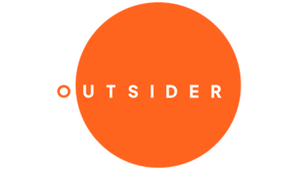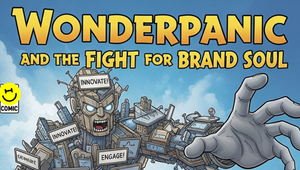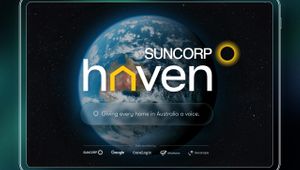
The Directors: Simon Neal

Simon Neal got his break in advertising with a charity film for Cancer Research UK, which garnered him the Best New Director award at the British Arrows and a Bronze Lion at Cannes. Since then he’s built up an extensive portfolio of commercials for some of the world’s leading brands, including British Airways, Land Rover, McDonald’s and Sony.
He also directed Channel 4’s Chewing Gum, starring Michaela Coel. The Evening Standard called it ‘Magnificently filthy wit’ and it was proclaimed by The Guardian to be ‘The future of comedy’, no less. It was nominated for Best Scripted Comedy at the BAFTAs.
Further Channel 4 credits include Doughnuts, a half-hour single comedy starring Adeel Akhtar and Anjli Mohindra, the acclaimed comedy drama series Youngers, described by the Observer as ‘Tender, topical, truthful. A gem.’, and Rue Boy, a spoken word film co-written with Calvin Demba and broadcast in five parts.
His short film Washdays won Best Film at Rushes Soho Shorts, Special Jury prize at Austin International Film Festival and was nominated for a British Independent Film Award.
Name: Simon Neal
Location: London
Repped by/in: UNIT9 Films
LBB> What excites you in the advertising industry right now, as a director? Any trends or changes that open new opportunities?
Simon> The return to ad-supported content by the streamers is pretty exciting—could it be that the 30s TVC isn’t dead after all? Hopefully it will mean more work for us and cheaper telly for everyone.
LBB> What elements of a script sets one apart from the other and what sort of scripts get you excited to shoot them?
Simon> Good writing. Humour. Scale. Ambition. Originality. The perfect synthesis of product, idea and format. Any of these elements would get me excited to shoot a script, but if I had to choose just one it would be the writing. And a massive budget.
LBB> How do you approach creating a treatment for a spot?
Simon> I wish I could say I simply scribble down a few notes and trust that the creative team have bought into my vision and the sheer charisma that I projected over Zoom. But the truth is usually a long week of writing, rewriting, covering off every detail, finding references, selecting imagery, working on a layout until I end up with a deck that, like this paragraph, is far too long.
LBB> If the script is for a brand that you're not familiar with/ don’t have a big affinity with or a market you're new to, how important is it for you to do research and understand that strategic and contextual side of the ad? If it’s important to you, how do you do it?
Simon> I see my job as being to figure out how best to tell the story that’s presented in the script. I’ll certainly look at a brand’s recent advertising output, and collaborate closely with agency and client to capture the particular tone of voice they’re after, but you’d hope that if you simply tell the story well, then all that strategic, contextual stuff will look after itself.
LBB> For you, what is the most important working relationship for a director to have with another person in making an ad? And why?
Simon> The creatives, because it’s their baby. I’m just the midwife.
LBB> What type of work are you most passionate about - is there a particular genre or subject matter or style you are most drawn to?
Simon> Comedy. I don’t mind how you want to label it—broad, subtle, intelligent, daft, romantic, gross-out, observational, surreal, slapstick, deadpan, dark, light—if it makes me laugh I’m in!
LBB> How do you strike the balance between being open/collaborative with the agency and brand client while also protecting the idea?
Simon> I’m always striving to be as open/collaborative with the agency and brand client as possible, because they’ve hired me. It would be awkward and unpleasant otherwise, and also unlikely that I’d ever be hired again.
My aim is always to deliver what I think is the best version of a film, but often you do have to strike a balance—judging what’s worth fighting for and what you’re better off letting go is half the job.
LBB> What are your thoughts on opening up the production world to a more diverse pool of talent? Are you open to mentoring and apprenticeships on set?
Simon> The production world should be open to everyone at every level, with no barriers to entry. I’m very much open to mentoring and apprenticeships on set—if anyone reading this would like to be mentored or an apprentice on one of my shoots please do get in touch!
LBB> Your work is now presented in so many different formats - to what extent do you keep each in mind while you're working (and, equally, to what degree is it possible to do so)?
Simon> Of course you have to keep the various deliverables in mind, but a ‘one size fits all’ approach will inevitably result in compromise. You’ll end up putting all the action in the centre of the frame which is fine if you’re Wes Anderson or George Miller, not so great if you want to employ the rule of thirds, golden section or any of the other approaches to composition that have been used since the dawn of time. And you’ll have to favour singles over two-shots, which is a shame, especially in comedy, because a two-shot is always funnier than a single.
LBB> What’s your relationship with new technology and, if at all, how do you incorporate future-facing tech into your work (e.g. virtual production, interactive storytelling, AI/data-driven visuals etc)?
Simon> If it helps tell the story / create the world / land the joke then I’m all for it. Virtual production is a great addition to the director’s toolkit. Now we can set our stories in Antarctica, on Mars, or in ancient Rome and know that we can make it look good for less. The only downside is you’ve got less chance of a jolly to the real Antarctica, Mars or ancient Rome.
LBB> Which pieces of your work do you feel show what you do best – and why?
It was fun working with Ryan Reynolds, Rob McElhenney and Wrexham AFC. The script came in on a Wednesday evening and by the following Tuesday (Monday was a bank holiday) the film was in the can. You’d normally want a bit more prep but sometimes a job benefits from a quick turnaround. Everyone becomes a lot more decisive and the adrenaline fuels the camaraderie—there’s no ‘us’ and ‘them’, you’re all in it together. We shot this the day Wrexham were celebrating their first promotion under the new owners—the atmosphere at the club and in the town was incredible.
BT Sport x WWE ‘Clash At The Castle’
The team at Saatchi and Saatchi were a joy to work with and very open to my input on the script. We did a lot of rewriting based on improv sessions—it felt like we’d assembled a Welsh version of an SNL cast. We only had Heavyweight WWE champion Damian Priest for a few hours but luckily his comic timing was impeccable.
Yandex ‘Don’t Call’
This was shot in Belarus with a Ukrainian crew for a Russian client, when it was still just about possible to say that in a sentence. We had a great client which meant that everything—casting, performance, cinematography, styling and production design—could be at the service of the comedy.
We managed to cram a lot into these spots—a nice bit of character comedy, some lovely food shots and a promotional offer, all in 10 seconds. Short but sweet!















